Dogs are known for their sleep habits that differ from their human counterparts. They can snooze for hours on end, with some breeds sleeping up to 20 hours a day. However, unlike humans who experience deep sleep and light sleep cycles throughout the night, dogs’ sleep patterns are more fragmented. They often have light sleep and are easily awakened by the noise, movement, or other stimuli. But what reasons make dogs such light sleepers? In this blog post, we will explore some reasons why are dogs light sleepers and some common questions about dog sleeping patterns, and how you will help your dog sleep deeply.
Why Are Dogs Light Sleepers? (8 Scientific Reasons)
- Protective Instinct
- Evolutionary Adaptation
- Separation Anxiety
- Alertness Training
- Age
- Breed
- Environmental Factors
- Sensory Processing Issues
1. Protective Instinct
A dog’s natural instinct is to protect its territory and loved ones. As a result, they are light sleepers during sleep. Their heightened awareness helps them respond to any perceived danger quickly, as they are sensitive to any unusual sounds or movements that might indicate potential threats.
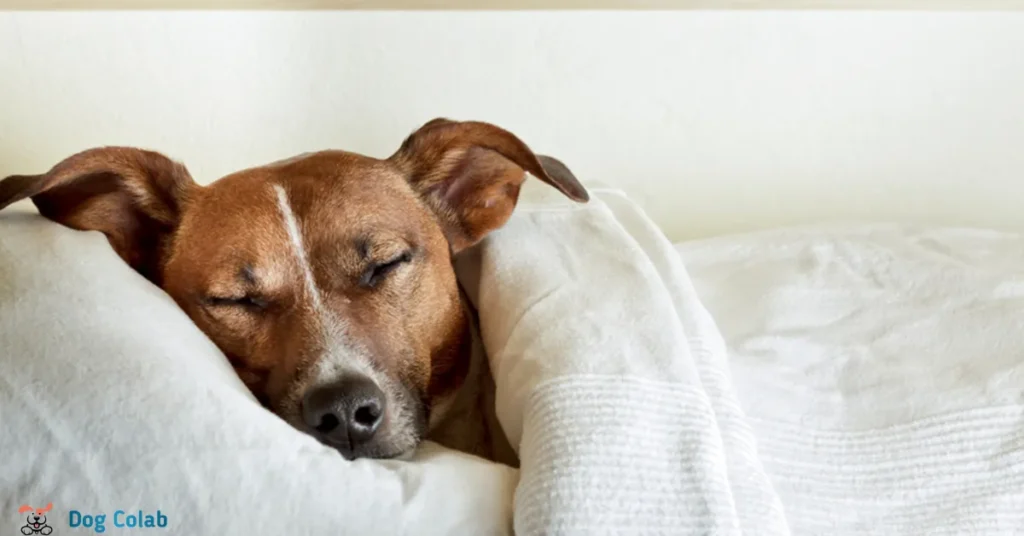
2. Evolutionary Adaptation
Dogs are light sleepers due to an evolutionary adaptation shaped by their ancestry as descendants of wolves. Through the process of natural selection, their ancestors developed the ability to stay alert even during periods of rest. This trait was essential for their roles as hunters and guardians, allowing them to respond quickly to potential threats. So, dogs have inherited this characteristic, making them vigilant even while asleep.
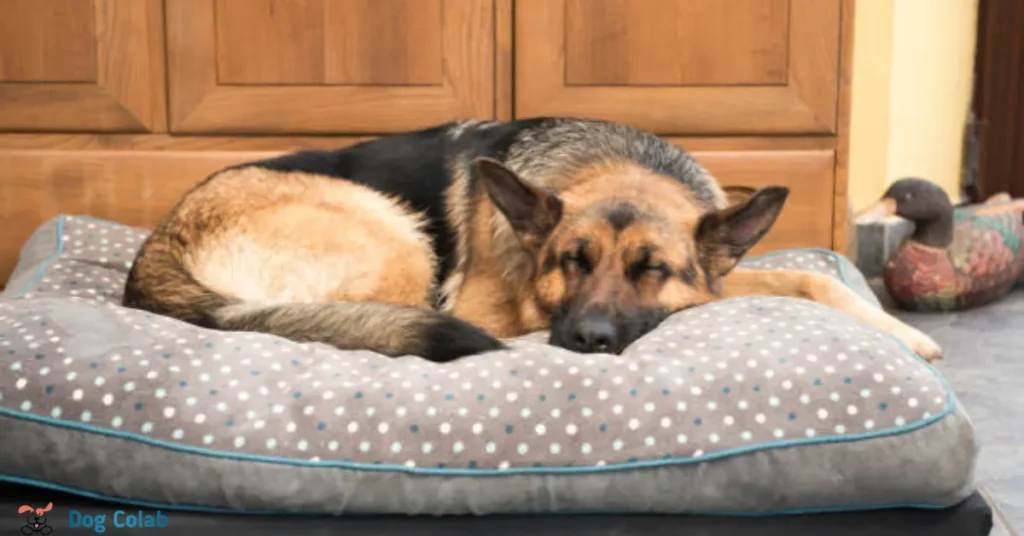
3. Separation Anxiety
Many dogs experience separation anxiety when separated from their owners or when left alone. This anxiety can disrupt their sleep patterns which cause them to become light sleepers. Dogs with separation anxiety are constantly on guard, anticipating their owner’s return or fearing potential threats in their absence.
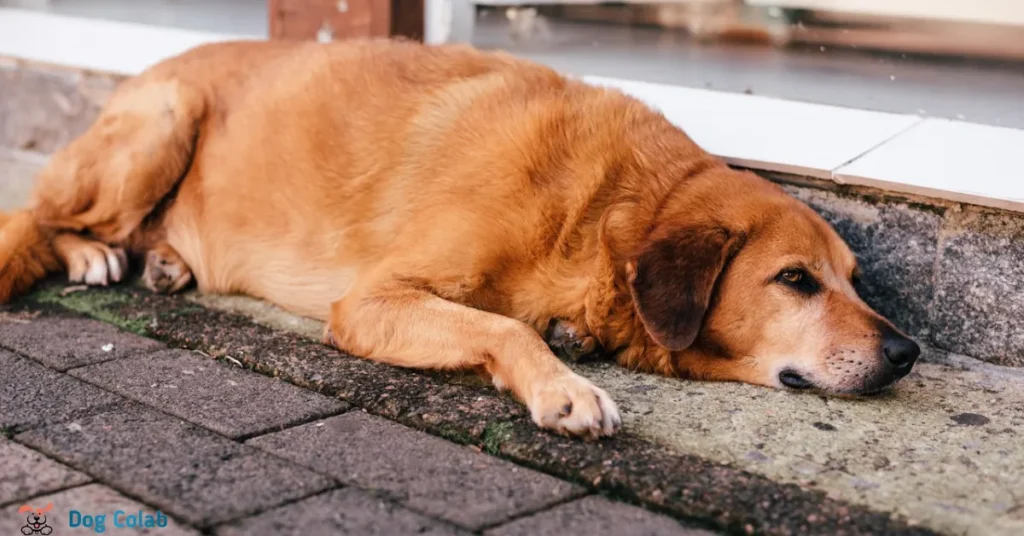
4. Alertness Training
Certain working and service dog breeds, such as police dogs or guide dogs, undergo extensive training to be alert and responsive to their surroundings. This training includes promoting light sleep so that they can quickly wake up and respond to specific cues or commands. These dogs are trained to be light sleepers to ensure they are always ready to perform their designated tasks.

5. Age
Aging dogs tend to be light sleepers due to various reasons. The physiological changes that come with age, like arthritis and other discomforts, make it harder for them to fall asleep and stay asleep. Their ability to regulate body temperature may also decline, affecting their sleep patterns. Moreover, older dogs may experience shifts in their mental and emotional states, leading to anxiety and fear, which disrupts their sleep. Sleep disorders like sleep apnea and REM behavior disorder further contribute to their frequent awakenings at night.

6. Breed
Dogs breeds have different sleeping patterns and tendencies, Some breeds are naturally more alert and vigilant, leading to light sleep, For example, herding or guarding breeds like Border Collies or German Shepherds have been bred for their ability to stay watchful and attentive, which can result in lighter sleep.
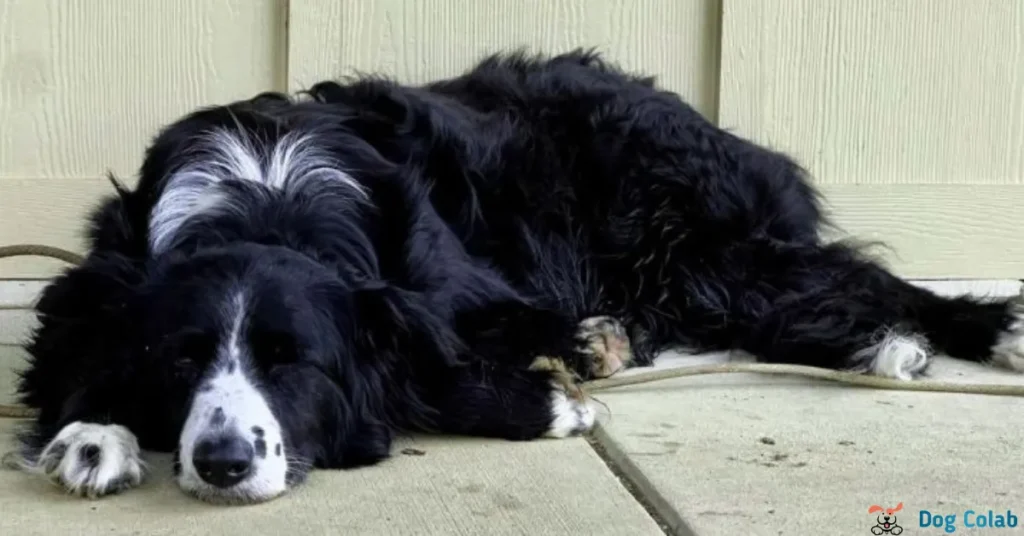
7. Environmental Factors
Dogs are sensitive to their environment, including changes in temperature, noise levels, or unfamiliar surroundings. These factors can also disrupt their sleep and make them light sleepers. Dogs remain more alert when exposed to new or potentially threatening stimuli in their environment, causing them to have lighter sleep.

8. Sensory Processing Issues
Some dogs have sensory processing issues, where they are more sensitive to sensory stimuli like sounds, lights, or touch. These dogs have difficulty reaching deep sleep and can be easily awakened by external stimuli, making them light sleepers.

Why Do Dogs Wake Up So Easily?
Dogs are known for their ability to wake up easily, and this can be attributed to several factors. First and foremost, dogs have a keen sense of hearing. Their ears are finely tuned to detect even the slightest sounds which allows them to be alerted to any changes in their surroundings. This means that dogs can quickly respond to noises that might otherwise go unnoticed by humans, causing them to wake up more easily.

Dogs have a highly developed sense of smell, which is significantly more powerful than that of humans. This ability enables them to detect even the faintest odors, including those associated with danger or food. As a result, if a dog smells something unfamiliar or enticing, it can wake them from sleep.
Additionally, dogs are vigilant creatures. They have a strong survival instinct from their ancestors, who relied on being alert to potential threats in the wild. This instinct remains deeply ingrained in their behavior, making them naturally more responsive and prone to waking up easily.
Overall, the combination of acute hearing a keen sense of smell, and an innate instinct for vigilance contributes to dogs waking up quickly and effortlessly that ensuring their readiness to respond to any situation.
Do Dogs Sleep Deeply?
Yes, Dogs experience deep sleep during the Rapid Eye Movement (REM) phase, which is the fourth stage of their sleep cycle. During this stage, dogs enter a state of profound unconsciousness. Dogs go through four distinct stages of sleep, with each stage increasing in depth. The deepest sleep occurs in the fourth stage, but it only constitutes a small portion, approximately ten percent, of their total sleep time.

Do Dogs Like To Sleep In The Dark or Light?
Dogs, like most mammals, have natural circadian rhythms that are influenced by light. Therefore, when it comes to their sleeping preferences, generally dogs prefer a dark or dim environment. Darkness or low lighting helps signal to their bodies that it’s time to rest and promotes a night of more restful sleep.

Keeping their sleeping area quiet and dark can create an optimal sleep environment for dogs, allowing them to relax and recharge during the night. Excessive noise can be disruptive and hinder their ability to fall asleep or stay asleep, so a peaceful and quiet environment is essential for their sleep quality.
How Long Do Dogs Sleep At Night Usually?
According to Dr. Roberts, dogs tend to allocate a significant portion of their sleep during the nighttime hours. Approximately 75% of a dog’s sleep cycle occurs at night, with the remaining 25% taking place during the daytime. On average, dogs sleep for approximately nine hours during the night, which helps them to recharge and rejuvenate for the day ahead.
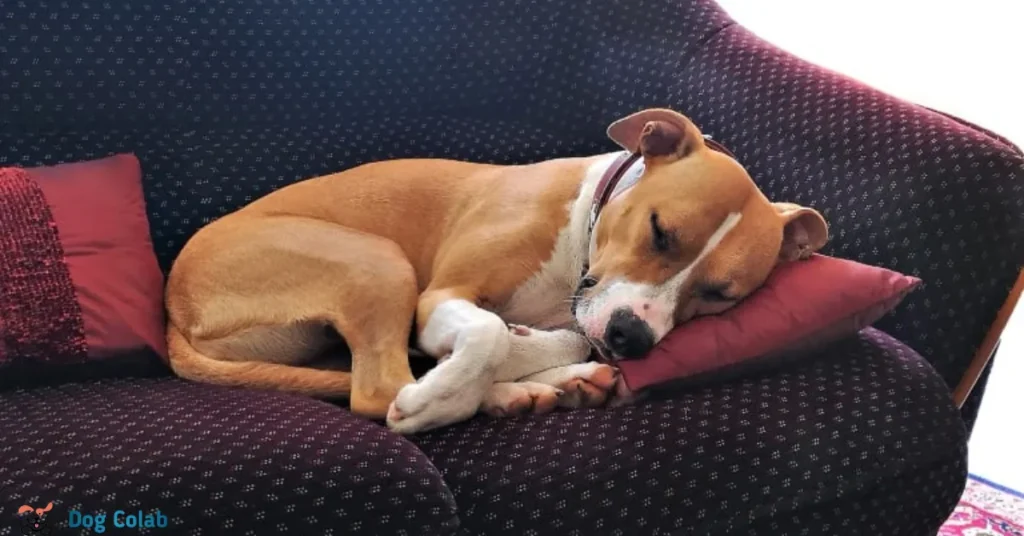
This extended period of nighttime sleep helps dogs maintain their energy levels and overall well-being.
The Sleeping Patterns of Dogs You Should Know
Dogs, like humans, have different sleep phases and cycles. Here’s what you need to know about dog sleep patterns.

1. Duration
Dogs typically sleep for 12 to 14 hours daily, with puppies and older dogs snoozing for up to 18 hours. Their sleep patterns vary depending on age and individual needs. Providing dogs with sufficient rest is essential for their overall well-being and ensuring they stay healthy, happy, and energized during their awake hours.
2. Sleep Cycles
Dogs experience two types of sleep. Sleep with rapid eye movement (REM) and sleep without rapid eye movement (NREM). Non-REM sleep can be further divided into two stages, slow-wave sleep and quiet sleep.
3. REM Sleep
During REM sleep, dogs experience the stage of sleep where most dreaming occurs. During this sleep dogs may twitch, barking, whimpering, and other movements associated with dreaming. Even with their eyes closed, their eyelids exhibit rapid movement as they engage in vivid dream experiences.
4. Non-REM Sleep
During Non-REM sleep, dogs experience deep restorative slumber. This stage of sleep is characterized by reduced brain activity and slow eye movements. Dogs often enter Non-REM sleep shortly after falling asleep, and it plays a vital role in their overall sleep cycle, promoting physical and mental rejuvenation.
5. Sleep Position
Dogs have diverse sleeping patterns and can assume various positions when they rest. They curl up, stretch out on their side, or even lie on their back with their legs in the air. Their choice of sleeping position can be influenced by factors like temperature and comfort.
6. Sleep Disturbances
Dogs can be easily awakened during sleep, especially during REM sleep. They are awakened by loud noises, sudden movements, or unfamiliar stimuli. These disturbances can startle them awake and interrupt their sleep cycle, affecting the quality and duration of their rest.
7. Age and Breed Differences
The sleeping patterns of dogs vary based on their age and breed. Puppies and younger dogs often have erratic sleep patterns, including shorter sleep cycles and more frequent awakenings. On the other hand, larger breeds tend to sleep more than smaller breeds.
8. Factors Affecting Sleep
A dog’s sleep pattern can be influenced by several factors, including exercise, diet, environment, and overall health. Regular exercise and mental stimulation can help promote better sleep in dogs.
9. Sleep Disorders
Dogs, like humans, can experience sleep disorders such as insomnia, sleep apnea, or narcolepsy. If you notice significant changes in your dog’s sleep pattern or behavior, it’s best to consult a veterinarian for proper guidance.
How To Help Your Dog Sleep Deeply?
To help your dog sleep deeply and restfully, there are several steps you can take. First and foremost, make a consistent bedtime routine because dogs thrive on routine, so create a calming routine before bed that includes activities like a short walk or playtime followed by gentle petting and cuddling. This will signal to your dog that it’s time to wind down and relax.
It is important to create a comfortable sleeping environment. Provide a cozy dog bed in a quiet and dark area of your home. Make sure the temperature is neither too hot nor too cold, and consider using a piece of calming music to drown out any disruptive sounds.
Regular exercise can help your dog sleep deeply. Ensure your furry friend gets plenty of physical and mental stimulation throughout the day. A tired dog is more likely to settle down and have a good night’s sleep.
Lastly, be mindful of your dog’s diet. Avoid feeding them a large meal right before bed, as this can cause discomfort. Additionally, some dogs may benefit from a light evening snack, such as a small portion of their regular food or a few treats, to keep their stomachs from growling overnight.
So, If you implement these steps, you can help promote a deep and restful sleep for your beloved canine companion, ensuring they wake up refreshed and ready for a new day of adventures.
Don’t forget to also check out: Why does my dog sleep on me at night and Why do dogs yawn when you pet them.
Conclusion “Why Are Dogs Light Sleepers”
Dogs are light sleepers due to a combination of factors such as fewer slow-wave sleep phases, more REM sleep, heightened senses, and breed history. Understanding your dog’s sleeping patterns can help you create a more comfortable resting environment and ensure they get the rest they need to stay healthy and happy.
NOTE:- For more information click this link.
FAQs
1. Why is my dog not a deep sleeper?
Dogs typically have shorter periods of deep sleep compared to humans, making them more easily aroused and alert to potential threats even during sleep.
2. Why can dogs wake up so quickly?
Because dogs doze off whenever they like, often out of boredom, they also wake up quickly and jump to alertness quickly as a result of their irregular sleep patterns.
3. Why does my dog wake up to the slightest noise?
Sleep startle in dogs can be a sign of stress or unfamiliarity with their surroundings. New environments or changes in routine can contribute to heightened sensitivity to noise during sleep.
4. How do dogs know to sleep all night?
Dogs have circadian rhythms and learn from past experiences to recognize when it’s time to sleep. Their sensitivity to day and night helps them make a routine for resting at night.
5. Can dogs hear while sleeping?
Yes, dogs can hear while sleeping. Their sense of hearing remains active even during sleep, allowing them to detect sounds and respond if necessary.

